During the research this summer we worked with several different scientists and looked at a variety of canine “issues”. One of the more interesting days came in late August when Dr. Dennis Grahn came up from Stanford University to look at our dogs under a “heat loss microscope”. Dennis studies temperature regulation methods by dogs as well as humans. He brought a camera that measured the heat loss areas on our dogs (and humans when they got in the way!) Recently, some of the raw data footage from the camera was made into this video.
In this video are: Beemer, Rambler, Waylon, Hank, Scout, Chica and Aliy. Waylon is the last dog to leave the screen. You can see his warm tongue hanging out of his mouth.
Dogs have a fantastic heat regulation system which include skin heat loss, breathing techniques, panting and foot pads heat loss. This study at SP Kennel is part of a larger project trying to “Make a Better Canine Solider”. Dogs working in current war hot-spots such as Afghanistan or Iraq must use all of their natural biological abilities to stay cool. We are hoping to do a small part to help create cooling “man made” aids for these canine soldiers in the future.


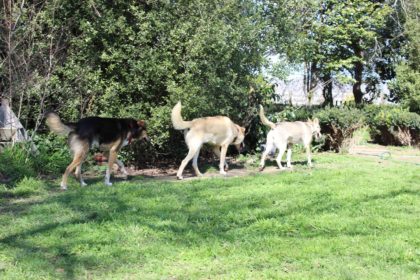

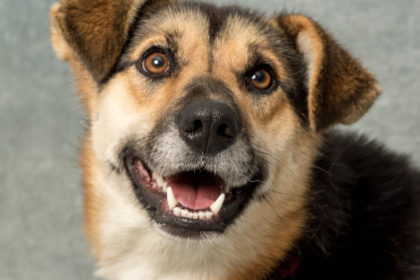
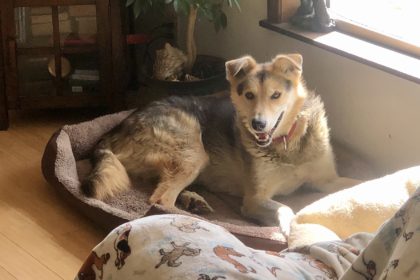
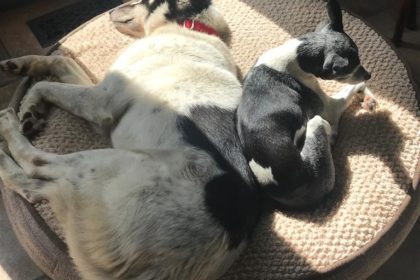
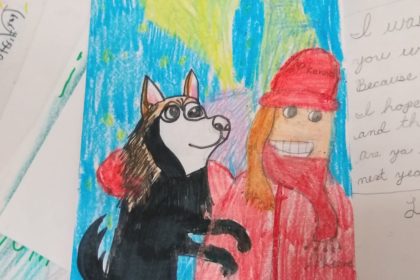

Gives a whole new meaning to the term "hot pants"…
😉
Leave it to you! I was gonna mention something about the fact that I had on light work out pants and a big parka …. but I thought I'd focus on the dogs.
– "Hot Pants" Aliy
Humans obviously have the opposite problem in cold weather. Your face is nothing but white, white, white .. as you moved it seemed your calves became whiter. Was that a result of expending energy or an artifact of our naked ape status (stretch pants thinning so there was less protection for fragile human skin)?
There were dogs in the video?
ALIY–
Thanks for the infrared video of your "cool cats" or was that "deep freeze dogs" – helps me understand how/why the Alaska Husky can run around in frigid weather with little or no covering!
The loss of heat from the undersides of the dogs' legs makes sense in this context, and might result in designing even better canine jackets for severe cold.